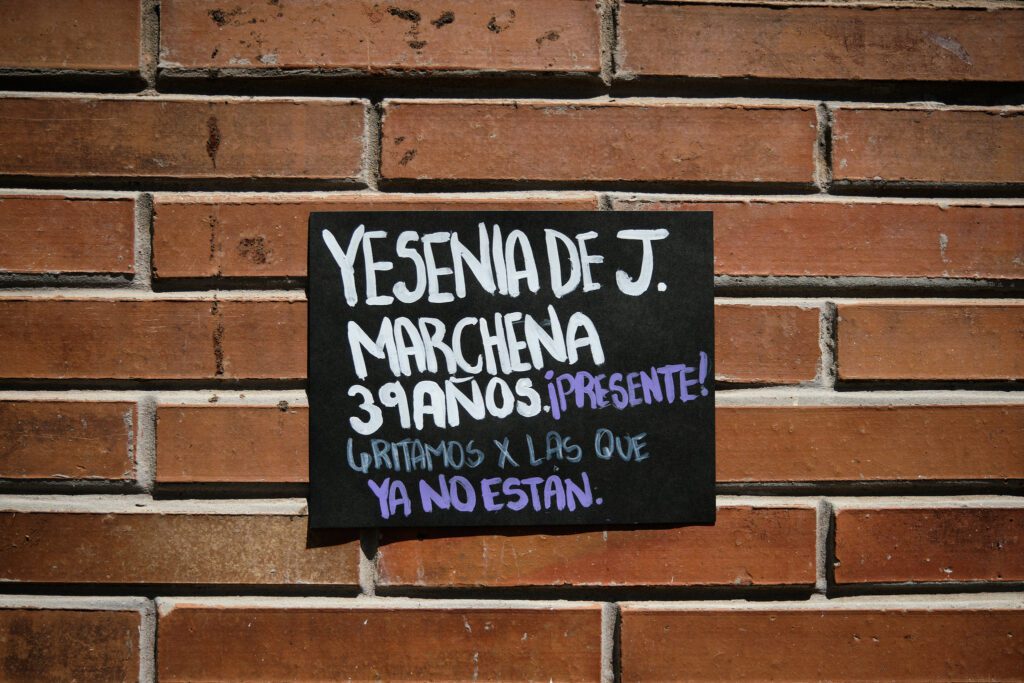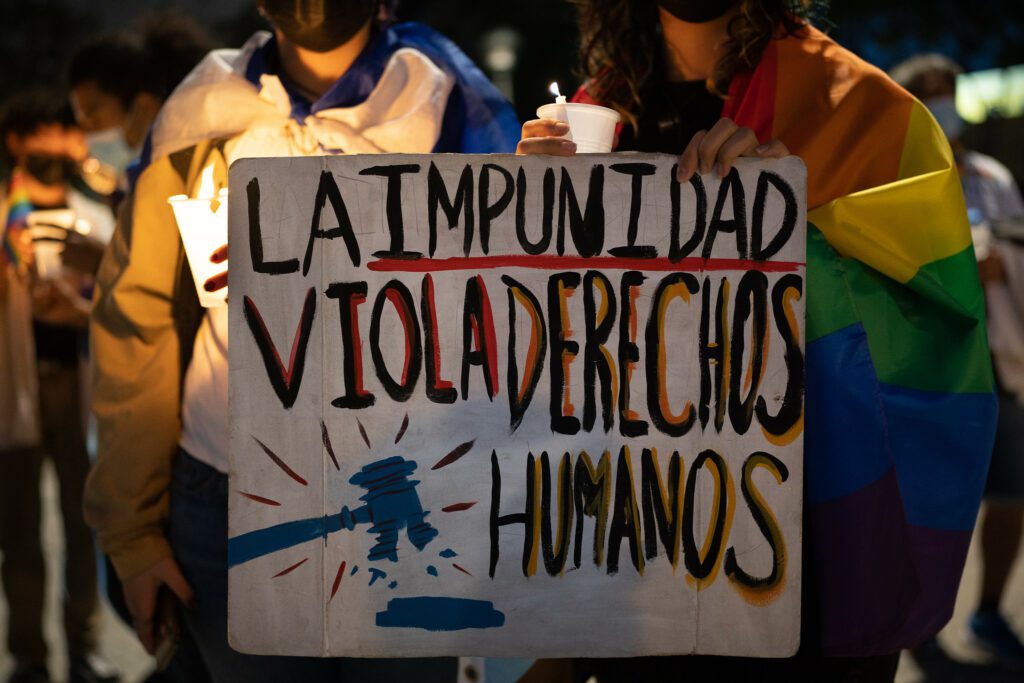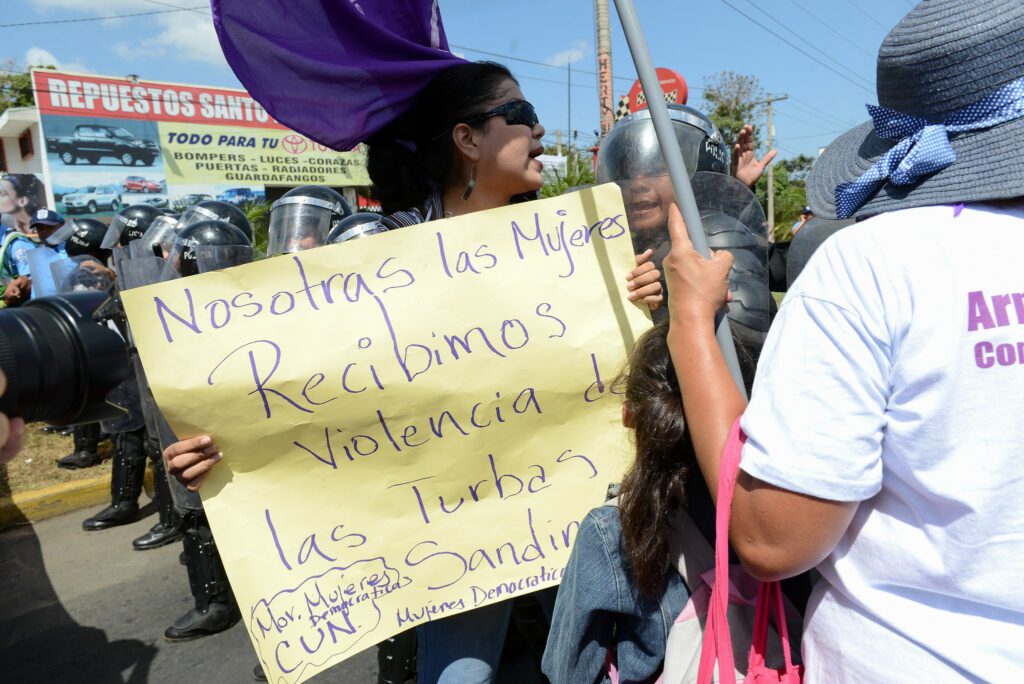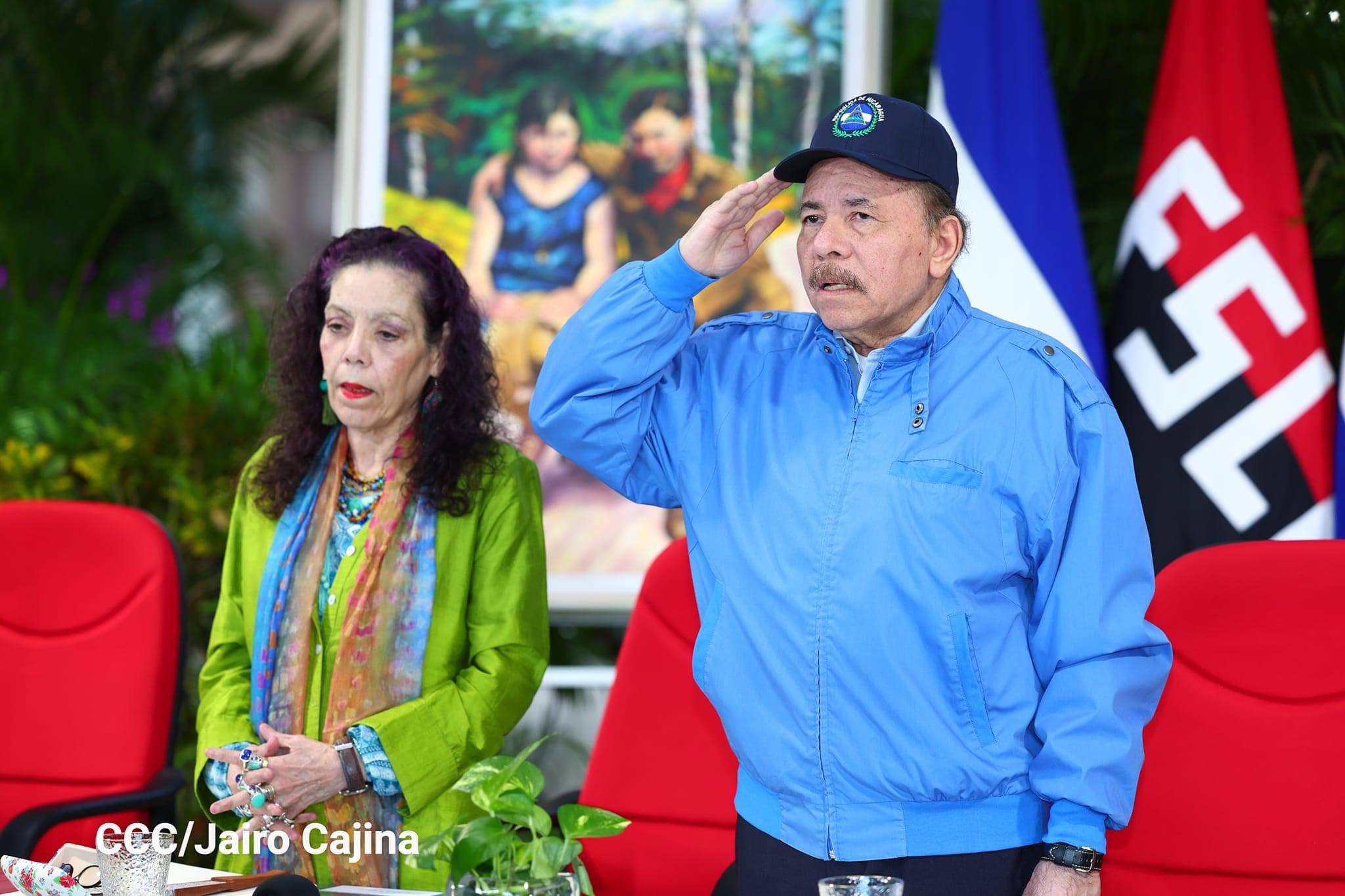Without fulfilling any of the obligations that the Nicaraguan State has with the promotion and protection of human rights, and without answering the List of issues and questions issued by the United Nations, the dictatorship of Daniel Ortega and Rosario Murillo will be held accountable for the state of women’s rights at the next session of the Committee on the Elimination of Discrimination against Women (CEDAW), which will be held between October 16 and 21 in Geneva, Switzerland.
Among the topics to be answered by the Nicaraguan State in the List of Issues and Questions are the measures to guarantee gender equality and women’s rights in the current political and socioeconomic context.
“Please inform the Committee on measures taken to address all forms of gender-based violence against women, in particular those that have affected women human rights defenders and social activists involved in the protests,” CEDAW requested in 2020.
“This includes physical and sexual violence, reprisals, harassment, disproportionate use of force by the police, illegal and arbitrary detentions, ill-treatment and intimidation,” the request adds.
The Nicaraguan State must also respond on access to justice; prevention of gender-based violence; trafficking and exploitation of prostitution; the situation of women human rights defenders, nationality of women activists, sexual and reproductive rights, and early marriage and unions; among other aspects related to the quality of life of women and girls in the country.
However, as of June 26, 2023, the Ortega-Murillo regime did not respond on the measures taken to address these situations and repair the problems, according to the United Nations (UN). This makes Nicaragua one of the three countries that did not respond, out of the seven countries to be evaluated.
These countries are Albania, Bhutan, Guatemala, Malawi, Philippines, Uruguay, France and Jamaica, the latter two also failed to respond to the lists of issues and questions.
Nicaragua has ratified the Convention on the Elimination of All Forms of Discrimination against Women since 1981 and the session to be held will serve for the issuance of concluding observations, which so far have not been made for the country.
Number of femicides and hate crimes have increased in recent years

Meanwhile, Mesa Nacional LGBTIQ+ in its shadow report submitted to the CEDAW, noted that Nicaragua has not fulfilled its obligations as a State and on the contrary, has profoundly violated the rights of women and of sexual diversities.
The report also indicates that the Ortega-Murillo regime has carried out measures that “have only functioned as an attempt to improve the government’s image on human rights issues at the international level,” but in practice have not led to a real improvement in the quality of life of these populations.
Killings of women have increased
Mesa Nacional LGBTIQ+ highlights that in the last three years the number of murders of women and people of sexual diversity has increased considerably since the last CEDAW session held in 2020, but the State has not deployed effective policies to prevent and decrease violence.
The number of femicides in 2021 was 71, in 2022 it was 68 and until the end of September 2023 it was 60, according to the observatory Católicas por el Derecho a Decidir.
Meanwhile, between 2021 and June 2023, seven hate crimes and/or murders against LGBTIQ+ people were registered, in addition to 133 complaints of situations of discrimination and violence, according to the Observatory of human rights violations of LGBTIQ+ people in Nicaragua.
“Faced with this increase in violence towards women in general, and specifically transgender, lesbian and bisexual women; the most concrete response of the Government has focused on the publication of the ‘Women and Rights’ Booklet in 2022, and the ‘The right to choose and the duty to respect / diversity’ Booklet of 2023,” Mesa Nacional LGBTIQ+ noted.
However, “there are references that this type of actions are not sustained over time and therefore their impact is limited, it remains in the presentation of a short-range speech to the official,” it added in the report.
Women and LGBTIQ+ people vulnerable to arrests and discrediting campaigns

Mesa Nacional LGBTIQ+ warned that since the beginning of the socio-political crisis in 2018, the Ortega-Murillo regime has maintained repressive measures against women human rights defenders and sexual diversity activists.
The dictatorship alone currently holds 16 women in prison for political reasons; meanwhile, from 2018 to date at least 30 openly LGBTIQ+ people were imprisoned, including six transgender women and at least eight lesbians.
In addition to arbitrary imprisonments, permanent discrediting campaigns have been another of the most frequent attacks. According to the organization, gender, sexual orientation and identity have been key elements to suffer some of these campaigns promoted by people related to the regime or by public servants.
This has increased vulnerability to violence, persecution and attacks. “The State’s inaction stimulates the recurrence of these attacks by public servants, which in turn promotes other forms of discrimination and an increase in aggressions in the short, medium and long term,” the report stated.
LGBTIQ+ women are excluded from political participation

At the last CEDAW session held in 2020, the Ortega-Murillo regime presented an extensive report in which it stated that during its administration it has prioritized equal rights between women and men, especially those related to political participation.
The Equal Rights and Opportunities Law, Law 648, has been one of the aspects in which the dictatorship claims that Nicaragua has gender equality and for which it has won the first place in Latin America as the country with the highest gender equality, according to the World Economic Forum.
No obstante, en la práctica, esta política excluye deliberadamente a las mujeres lesbianas, bisexuales, trans e intersex. El Segundo Estudio Situacional de los Derechos de las personas LGBTIQ+ en Nicaragua realizado por la Mesa Nacional en 2021, expone que sólo el 45 % de las personas encuestadas participaron alguna vez en una estructura política.
This participation was mostly in activities such as workshops, marches, distribution of propaganda or polling stations. Only 12.6% of the people represented the political party, 11.3% represented it in official events and 8.6% represented the party in the media.
“In other words, although LGBTIQ+ people in Nicaragua actively participate in political parties, they are not considered worthy of public representation,” said Mesa Nacional LGBTIQ+.
Country evaluations began on October 9 and will end with Nicaragua on October 27.





